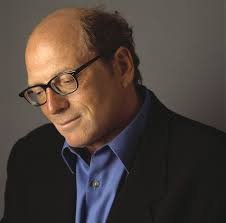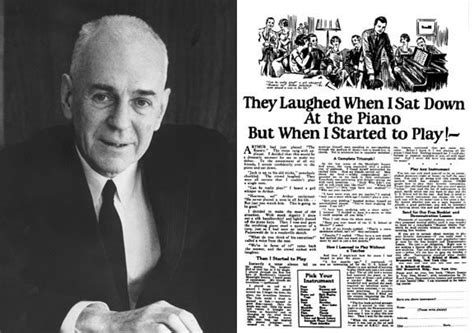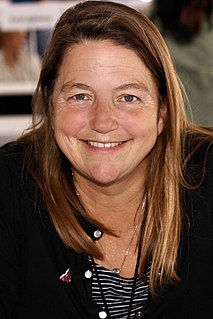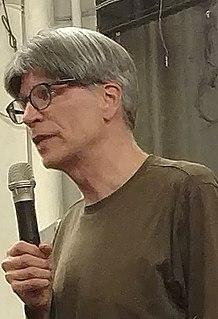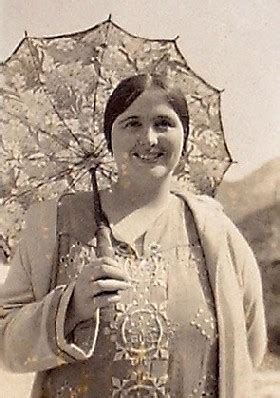Top 241 Paragraph Quotes & Sayings - Page 4
Explore popular Paragraph quotes.
Last updated on November 26, 2024.
Lagrange, in one of the later years of his life, imagined that he had overcome the difficulty (of the parallel axiom). He went so far as to write a paper, which he took with him to the Institute, and began to read it. But in the first paragraph something struck him that he had not observed: he muttered: 'Il faut que j'y songe encore', and put the paper in his pocket.' [I must think about it again]
Noam Chomsky is, in some ways, a victim of this new millennium we live in because you can't pull a sound bite from that guy and understand what he is talking about. You have to hear the whole paragraph. You have to hear the whole page. You've got to hear the whole conversation if you really want to understand it and that could change your life.
Four. That's what I want you to remember. If you don't get your idea across in the first four minutes, you won't do it. Four sentences to a paragraph. Four letters to a word. The most important words in the English language all have four letters. Home. Love. Food. Land. Peace. . .I know peace has five letters, but any damn fool knows it should have four.
If I write a paragraph and I don't get a certain lift from it, if I don't feel connected to it emotionally, then it's dead to me. When I'm reading other fiction writers, if I don't get any emotional investment from the writer, if it's just intellectual or clever - you know, most writing that passes as deep is just clever - I don't feel any connection.
To get the right word in the right place is a rare achievement. To condense the diffused light of a page of thought into the luminous flash of a single sentence, is worthy to rank as a prize composition just by itself...Anybody can have ideas--the difficulty is to express them without squandering a quire of paper on an idea that ought to be reduced to one glittering paragraph.
I always tell my students to write the story all the way through, not to play with the language and fall in love with sentences that you then have to cut. I actually find that really difficult to do; there's something so demoralizing about looking at a pile of not very great sentences. As I ease into writing every morning, I tweak a sentence and then tweak a paragraph.
The Canon AE1 - a fully manual camera. [My mother] had a 50mm, which is a standard lens, and then I got a 28mm. Then I started a little punk magazine, a zine, when I was 14 or 15 years old. I was shooting my friends skateboarding and it was the beginning of the Macintosh. We wouldn't do layouts on the computer; we would pick the font and then type up a paragraph and then print it out and cut it up and put it in a little mock-up and Xerox it.
So this is supposed to be about the how, and when, and why, and what of reading -- about the way that, when reading is going well, one book leads to another and to another, a paper trail of theme and meaning; and how, when it's going badly, when books don't stick or take, when your mood and the mood of the book are fighting like cats, you'd rather do anything but attempt the next paragraph, or reread the last one for the tenth time.
When I read out loud in class, it was a joy for everyone else because I would mispronounce things so badly. I used to try to count how many people were in front of me and then work out which paragraph I would have to read out and start trying to learn it. And I would sit there thinking, 'Please let the bell go so that it doesn't get round to me.'
Each story, good and bad, short or long-from that trip to the mall when you saw Santa, to a long, bad illness-they are all a line or a paragraph in our own life manuscript. Two thirds of the way through, even, and it all won't necessarily make sense, but at the end there'll be a beautiful whole, where every sentence of every chapter fits.
The story of this man who had killed a messenger and hanged himself would make interesting reading. One could almost write a whole chapter on him. Perhaps not a whole chapter but a resonable paragraph, at any rate. There was so much else to include, and one must be firm in cutting out details. He had already chosen the title of the book, after much thought: `The Pacification of the Primitive Tribes of the Lower Niger.'
If you set your bar at 'amazing' it's awfully difficult to start. Your first paragraph, sketch, formula, sample or concept isn't going to be amazing. Your tenth one might not be either. Confronted with the gap between your vision of perfect and the reality of what you've created, the easiest path is no path. Shrug. Admit defeat. Hit delete. One more reason to follow someone else and wait for instructions. Of course, the only path to amazing runs directly through not-yet-amazing. But not-yet-amazing is a great place to start, because that's where you are.
since feeling is first who pays any attention to the syntax of things will never wholly kiss you; wholly to be a fool while Spring is in the world my blood approves, and kisses are a far better fate than wisdom lady i swear by all flowers. Don't cry --the best gesture of my brain is less than your eyelids' flutter which says we are for eachother: then laugh, leaning back in my arms for life's not a paragraph And death i think is no parenthesis
All your clear and pleasing sentences will fall apart if you don't keep remembering that writing is linear and sequential, that logic is the glue that holds it together, that tension must be maintained from one sentence to the next and from one paragraph to the next and from one section to the next, and that narrative - good old-fashioned storytelling - is what should pull your readers along without their noticing the tug.
You can write a 1st paragraph that continues the same thought you expressed in your headline. If you stop a reader with a headline about house paint, you can be sure of at least one thing about that reader: He wants more info about house paint. You will not lose him as long as you continue to give him what he wants.
In the end, it was the Sunday afternoons he couldn't cope with, and that terrible listlessness that starts to set in about 2:55, when you know you've taken all the baths that you can usefully take that day, that however hard you stare at any given paragraph in the newspaper you will never actually read it, or use the revolutionary new pruning technique it describes, and that as you stare at the clock the hands will move relentlessly on to four o'clock, and you will enter the long dark teatime of the soul.
It's Nathaniel Hawthorne Month in English. Poor Nathaniel. Does he know what they've done to him? We're reading The Scarlet Letter one sentence at a time, tearing it up and chewing on its bones. It's all about SYMBOLISM, says Hairwoman. Every word chosen by Nathaniel, every comma, every paragraph break -- these were all done on purpose. To get a decent grade in her class, we have to figure out what he was really trying to say. Why couldn't he just say what he meant? Would they pin scarlet letters on his chest? B for blunt, S for straightforward?
There's this great Ron Carlson story, "A Note on the Type," and it's about this guy who keeps escaping from prison. He's really good at escaping, but he gets caught all the time, because he can't stop writing his name on underpasses where he's running from the law. And there's this whole beautiful paragraph about how to run is to write. And, you know, it's obviously about the writer's life.
During my last year of college I wrote the same ten pages over and over again. Those ten pages became the first few pages of my first novel. I can still recite the opening paragraph from memory - only now I cringe when I do it because they are - surprise! - a classic example of overwriting, in addition to being a more than a little pretentious.
Being a nerd, which is to say going too far and caring too much about a subject, is the best way to make friends I know. For me, the spark that turns an acquaintance into a friend has usually been kindled by some shared enthusiasm . . . At fifteen, I couldn't say two words about the weather or how I was doing, but I could come up with a paragraph or two about the album Charlie Parker with Strings. In high school, I made the first real friends I ever had because one of them came up to me at lunch and started talking about the Cure.
When I was eight years old, I wrote a paragraph-long short story about a goat on my mother's hundred-pound, black-and-white-screen laptop. The story came about largely because I liked the way the word 'goat' looked on the page, but I decided then and there that I wanted to be a writer. That desire never changed.
The problem is once you've written the opening paragraph and worked out how the rest of the story will go in your head, there's nothing in it for you. I write in longhand using disposable fountain pens on the right-hand side of the notebook for the first draft, then I rewrite some of the sentences and paragraphs on the left-hand side.
I'm convinced that the Christian claim is really true, that this is just a warm up to the big event. That this is just the appetizer to the feast, and if we can plug into that and understand that this part of our story is just the introduction, it is not even the first line of the first paragraph, it's just the first letter or first word. We are just getting started.
I pointed to an article with bold headlines reporting that the police had refused to allow the PAP to hold a rally at Empress Place, and then to the last paragraph where in small type it added the meeting would take place where we were now. I compared this with a prominent report about an SPA rally. This was flagrant bias.
Elisabeth Sheffield's new novel is multilayered, smart, beautifully written, and funny. I was taken in by the first paragraph and held firmly through the roller coaster of a ride. The depth of the novel was evidenced by the constantly shifting meaning of the title itself. In fact, the entire work never changes its meaning, but somehow, seamlessly, simply means more. This is a rare and memorable piece of work.
Time passes, as the novelist says. The single most useful trick of fiction for our repair and refreshment: the defeat of time. A century of family saga and a ride up an escalator can take the same number of pages. Fiction sets any conversion rate, then changes it in a syllable. The narrator’s mother carries her child up the stairs and the reader follows, for days. But World War I passes in a paragraph. I needed 125 pages to get from Labor Day to Christmas vacation. In six more words, here’s spring.
If you want to lose 40 pounds, you order salad instead of fries. If you want to be a better friend, you take the phone call instead of screening it. If you want to write a novel, you sit down and write a single paragraph. It's scary to make major changes, but we usually have enough courage to take the next right step.
You write down a paragraph or two describing several different subjects creating a kind of story ingredients-list, I suppose, and then cut the sentences into four or five-word sections; mix em up and reconnect them. You can get some pretty interesting idea combinations like this. You can use them as is or, if you have a craven need to not lose control, bounce off these ideas and write whole new sections.
Actually, if you go back to what Marx said in The Communist Manifesto over a hundred years ago, when in talking about the constant revolutions in technology, he ended that paragraph by saying, "All that is sacred is profaned, all that is solid melts into air, and men and women are forced to face with sober senses our conditions of life and our relations with our kind." We're at that sort of turning point in human history.
One thing I'd do was put a great writer's book beside the typewriter and... type out a beautiful and moving paragraph... and see those sentences rising up... and... think, 'Someday maybe I can write like that....' It was like a dream of possibilities for my own self. And maybe I began to know that there was no other way for the sentence... to... arouse the same feeling. The someone writing whose words were rising from the typewriter became like a mentor for me.... You shouldn't do it more than a few times because you must get on with your own work.
Nonfiction narratives are really powerful and valid in themselves. But one thing that you don't get sometimes from the more clinical or academic books or nonfiction books is that you don't get to hear the person's voice; you don't get them as individuals. You get a few quotes and you hear them as sort of a case study: numbers, examples, anecdotes, maybe a paragraph here, and that's about it.
If we have dwelled on Godel's work at some length, is it because we see it in the mathematical analogy of what we would call the the ultimate paradox of man's existence. Man is ultimately subject and object of his quest. While the question whether the mind can be considered to be anything like a formalized system, as defined in the preceding paragraph, is probably unanswerable, his quest for an understanding of the meaning of his existence is an attempt at formalization.
In the learned journal, in the influential newspaper, I discern no form; only some irresponsible shadow; oftener some monied corporation, or some dangler, who hopes, in the mask and robes of his paragraph, to pass for somebody. But through every clause and part of speech of the right book I meet the eyes of the most determined men; his force and terror inundate every word: the commas and dashes are alive; so that the writing is athletic and nimble,--can go far and live long.
Before the scene, before the paragraph, even before the sentence, comes the word. Individual words and phrases are the building blocks of fiction, the genes that generate everything else. Use the right words, and your fiction can blossom. The French have a phrase for it - le mot juste - the exact right word in the exact right position.
When I started graduate school we did this publishing class where we learned about submitting and read interviews with editors from different magazines. A lot of them said they got so many submissions that unless the first page stuck out or the first paragraph or even the first sentence they'll probably send it back. So part of my idea was that if I have a really good first sentence maybe they'll read on a bit further. At least half, maybe more of the stories in Knockemstiff started with the first sentence; I got it down then went from there.
There's great poetry in the Old Testament and the New Testament. And I'm not interested in trying to prove whether this paragraph is as it was or as it should have been or should not be. My pursuit is to find the truth for me in those stories and make them apropos. The important thing is that people wrote them. These were inspirational stories, and you got to see them that way. If you don't, you'll get in trouble. So I'm not going to spend a lot of time trying to find out whether or not Mary was a virgin. What do I care about Mary being a virgin?
Read him slowly, dear girl, you must read Kipling slowly. Watch carefully where the commas fall so you can discover the natural pauses. He is a writer who used pen and ink. He looked up from the page a lot, I believe, stared through his window and listened to birds, as most writers who are alone do. Some do not know the names of birds, though he did. Your eye is too quick and North American. Think about the speed of his pen. What an appalling, barnacled old first paragraph it is otherwise.
I had this chronic hyperactivity and an inability to focus, so I was forever being moved to another class, with a much smaller group of children - some of them about 18. If I was asked to read a paragraph, this white wall would go up in my head. Still now, I read very slowly and can rarely work out a tip.
We're well past the end of the century when time, for the first time, curved, bent, slipped, flash forwarded, and flashed back yet still kept rolling along. We know it all now, with our thoughts traveling at the speed of a tweet, our 140 characters in search of a paragraph. We're post-history. We're post-mystery.
Our conviction that the world is meaningless is due in part to the fact (discussed in a later paragraph) that the philosophy of meaningless lends itself very effectively to furthering the ends of political and erotic passion; in part to a genuine intellectual error - the error of identifying the world of science, a world from which all meaning has deliberately been excluded, with ultimate reality.
This infantile sense of order tended to infect my life at large. Up at 5:30 a.m., coffee, oatmeal, perhaps sausage (homemade), and fresh eggs giving one of the yolks to Lola. Listening to NPR and grieving more recently over the absence of Bob Edwards who was the sound of morning as surely as birds. Reading a paragraph or two of Emerson or Loren Eiseley to raise the level of my thinking. Going out to feed the cattle if it was during our six months of bad weather.
Though methods play an important role in the early stage, the techniques should not be too mechanical, complex or restrictive. If we cling blindly to them, we shall eventually become bound by their limitations. Remember, you are expressing the techniques and not doing the techniques. If somebody attacks you, your response is not Technique No.1, Stance No. 2, Section 4, Paragraph 5. Instead you simply move in like sound and echo, without any deliberation. It is as though when I call you, you answer me, or when I throw you something, you catch it. It's as simple as that - no fuss, no mess.
To understand oneself requires patience, tolerant awareness; the self is a book of many volumes which you cannot read in a day, but when once you begin to read, you must read every word, every sentence, every paragraph for in them are the intimations of the whole. The beginning of it is the ending of it. If you know how to read, supreme wisdom is to be found.
My God, this novel makes me break out in a cold sweat! Do you know how much I've written in five months, since the end of August? Sixty-five pages! Each paragraph is good in itself and there are some pages that are perfect. I feel certain. But just because of this, it isn't getting on. It's a series of well-turned, ordered paragraphs which do not flow on from each other. I shall have to unscrew them, loosen the joints, as one does with the masts of a ship when one wants the sail to take more wind.
No woman will ever satisfy me. I know that now, and I would never try to deny it. But this is actually okay, because I will never satisfy a woman, either. Should I be writing such thoughts? Perhaps not. Perhaps it’s a bad idea. I can definitely foresee a scenario where that first paragraph could come back to haunt me, especially if I somehow became marginally famous.
In Madame Bovary Flaubert never allows anything to go on too long; he can suggest years of boredom in a paragraph, capture the essence of a character in a single conversational exchange, or show us the gulf between his soulful heroine and her dull-witted husband in a sentence (and one that, moreover, presages all Emma's later experience of men). (...) This is one of the summits of prose art, and not to know such a masterpiece is to live a diminished life.
I try to get a feeling of what's going on in the story before I put it down on paper, but actually most of this breaking-in period is one long, fantastic daydream, in which I think about anything but the work at hand. I can't turn out slews of stuff each day. I wish I could. I seem to have some neurotic need to perfect each paragraph?each sentence, even?as I go along.
I used to do miserably in English literature, which I thought was a sign of moral turpitude. As I look back on it, I think it was rather to my credit. The notion of actually putting writers' words into other words is quite ridiculous because why bother if writers mean what they mean, and if they don't, why read them? There is, I suppose, a case for studying literary works in depth, but I don't quite know what 'in depth' means unless you read a paragraph over and over again.
Our investments continue to be few in number and simple in concept: The truly big investment idea can usually be explained in a short paragraph. We like a business with enduring competitive advantages that is run by able and owner-oriented people. When these attributes exist, and when we can make purchases at sensible prices, it is hard to go wrong (a challenge we periodically manage to overcome).
The commas are the most useful and usable of all the stops. It is highly important to put them in place as you go along. If you try to come back after doing a paragraph and stick them in the various spots that tempt you you will discover that they tend to swarm like minnows into sorts of crevices whose existence you hadn't realized and before you know it the whole long sentence becomes immobilized and lashed up squirming in commas. Better to use them sparingly, and with affection, precisely when the need for each one arises, nicely, by itself.
The book was in her lap; she had read no further. The power to change one’s life comes from a paragraph, a lone remark. The lines that penetrate us are slender, like the flukes that live in river water and enter the bodies of swimmers. She was excited, filled with strength. The polished sentences had arrived, it seemed, like so many other things, at just the right time. How can we imagine what our lives should be without the illumination of the lives of others?




